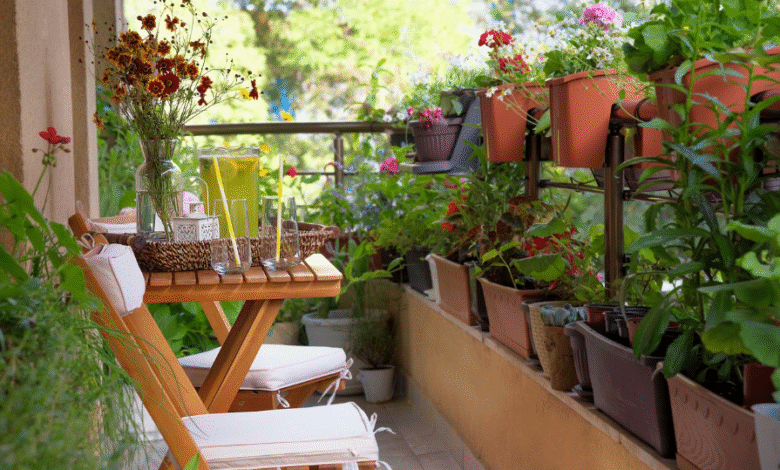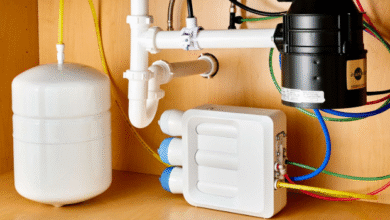Beautifying Urban Spaces: A Guide to Large Outdoor Pots and Planters

Urban gardening is a practice that transforms concrete-laden cityscapes into lush, green oases, providing both ecological benefits and aesthetic pleasure. As urban dwellers seek to establish green spaces within the constraints of balconies, rooftops, and compact yards, the use of large outdoor pots and planters has become an essential aspect of modern urban horticulture. These garden features not only serve as functional elements supporting plant life but also contribute significantly to the visual appeal of urban environments.
Understanding the Role of Large Outdoor Pots in Urban Gardening
Urban spaces often lack the expansive ground necessary for conventional gardening. As a solution, large outdoor pots provide a versatile and mobile platform for plant growth, enabling gardening enthusiasts to curate their green sanctuaries. By accommodating a range of plant species, from small shrubs to sizeable trees, these containers become vital tools in the hands of urban gardeners, creating opportunities for personal expression through landscaping in the city.
Material Considerations for Outdoor Planters
When selecting large outdoor pots, it’s crucial to consider the materials they are made from. Durability is a key factor; materials such as stone, metal, and high-grade plastic can withstand harsh weather conditions. The choice of material also affects the planter’s weight, drainage properties, and insulation capacity, all of which are important for the health of your plants. Therefore, it’s advisable to choose high-quality materials that balance practicality with the desired aesthetic.
Design and Aesthetics
Large outdoor pots and planters come in an array of designs, ranging from classical motifs to cleaner, contemporary lines. The design choice should ideally reflect the surrounding architecture and your personal taste, creating a harmonious blend between the urban backdrop and the natural elements. When well-executed, planters serve not just as homes for plants but as standalone art pieces that enhance the visual interest of an area.
Size and Scale: Matching Planters with Spaces
Proportionality is crucial when integrating large outdoor pots into urban settings. The pot’s scale should match the space without overwhelming it. For example, more substantial planters are suitable for open areas like communal courtyards, whereas slender, taller pots might be more appropriate for narrow walkways or balconies. It’s about striking a balance that complements both the plants and the available space.
Functionality of Outdoor Planters
Beyond aesthetics, the functionality of outdoor pots is paramount. They must facilitate proper drainage to prevent waterlogging and root rot. Many large planters are designed with built-in drainage systems, but in cases where they’re not, gardeners must be deliberate in creating a drainage layer. Furthermore, consideration for ease of movement is essential; opting for planters with wheels or using a wheeled base can significantly ease relocation efforts.
See also: Budget-Friendly Solutions for Home Makeovers
Caring for Plants in Large Outdoor Pots
Tending to plants in large outdoor pots requires attention to specific details such as watering, feeding, and repotting. The contained environment means that soil nutrients may be depleted more quickly, and thus, adequate fertilisation is crucial. Additionally, the potting mix should be suitable for the plant type and replaced or topped up as necessary to ensure healthy plant growth.
Maximising Space with Vertical Gardening
For those with limited horizontal space, vertical gardening using large planters is an innovative solution. Utilising trellises, wall-mounted pots, and stacking planters can dramatically increase the growing area. This approach not only maximises space but also can create privacy screens and improve air quality, thereby enhancing the living conditions in dense urban areas.
Seasonal Considerations for Outdoor Pots
In regions with distinct seasons, urban gardeners must prepare their outdoor pots for changing weather. This often involves relocating pots to sheltered areas during winter or providing shade during extreme summer heat. Choosing plants that are suitable for the local climate and the micro-environment of the urban space can also minimise the need for seasonal adjustments.
Creating Impactful Arrangements
Masterful arrangements of large outdoor pots can turn an average urban corner into a focal point. Grouping planters of varying heights, textures, and colours can create visually striking displays. Moreover, using a mix of perennial plants and seasonal flowers can ensure that the display remains vibrant year-round.
Environmental Benefits of Urban Planters
Large outdoor pots do more than just beautify; they contribute to the urban ecosystem. They can help reduce the urban heat island effect, improve air quality, and even support local wildlife by providing habitats for insects and birds.
Choosing the Right Plants for Your Pots
Selecting the right plants for your large outdoor pots is a critical step in urban gardening. Adaptability to pot culture, growth habits, and maintenance requirements are all factors to consider. Furthermore, integrating native species can support local biodiversity and require less maintenance, as they are already adapted to the local environment.
Community Engagement Through Urban Gardening
Lastly, urban gardening with large planters can foster community interactions. Shared gardening projects stimulate social cohesion and encourage collaborative efforts towards creating greener, more liveable urban spaces. This shared investment in the local environment can have far-reaching impacts on community wellbeing and sustainability.
Conclusion
The integration of large outdoor pots and planters is an inventive and practical strategy for enhancing urban environments. By providing vital support for plant life and contributing to the aesthetic and ecological improvement of cities, these containers represent more than just gardening accessories; they’re pivotal elements in the quest for sustainable urban living. Whether you’re a novice urban gardener or an experienced horticulturist, embracing the use of these versatile garden features can transform your urban space into a vibrant green retreat amid the hustle and bustle of city life.




